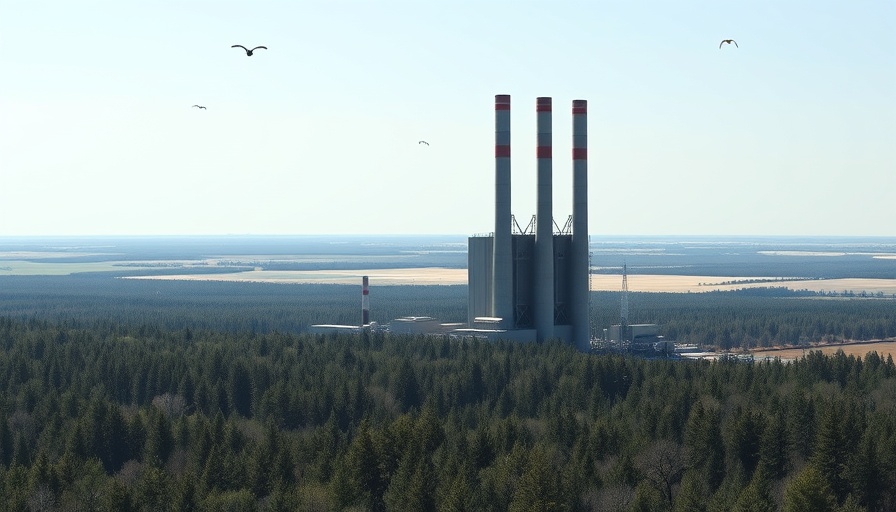
Palm Beach County’s New Waste Solution: A $1.5 Billion Investment
Palm Beach County, Florida, is taking a significant step in its waste management strategy, recently approving a $1.5 billion plan to build a new incineration facility by 2034. This decision aims to address concerns over the existing refuse-derived fuel plant, which has been in operation since 1989. With the growing population and the need for increased disposal capacity, the county board's unanimous vote marks a pivotal moment in its efforts to manage waste sustainably.
Environmental Implications and Community Concerns
As Palm Beach County moves forward with its ambitious project, environmental advocates are raising alarms. While the board sees the facility as a necessary development, critics express concerns regarding air emissions associated with incineration. The county's Renewable Energy Facility (REF) 2, operational since 2015, is already a large source of emissions, and extending incineration capacity could exacerbate the situation. Advocates argue for alternative waste management practices, including composting and recycling, but county officials are skeptical about the effectiveness of these methods in mitigating waste disposal issues.
The Larger Context in Florida’s Waste Management
Palm Beach County isn't alone in reconsidering its waste management strategies; other counties in Florida are also exploring incineration as a solution. Miami-Dade and Broward counties have been in discussions about new incineration facilities, while Pasco County is currently building a thermomechanical treatment facility. This collective movement reflects a growing trend in Florida, where many local governments are starting to recognize the limitations of traditional landfill capacities.
Why Incineration?
As landfills reach capacity—Palm Beach's North County Landfill is expected to be full by 2057—the pressing question arises: why continue to invest in incineration? The board members argue that with space for landfills shrinking and opposition from environmental groups, incineration presents a viable option for local waste management. This facility could potentially process up to 3,000 tons of waste per day, significantly extending the lifespan of existing landfill sites and reducing waste volume through combustion.
The Economic Benefits
The development of the new incinerator is not just an environmental issue but an economic one as well. The existing facilities bring approximately $60 million in revenue per year, and the anticipated growth from the new facility could further boost this figure. With Reworld poised to enter a competitive bidding process for the operations contract of the new facility, there are expectations of jobs and economic growth stemming from this investment.
Future of Waste Management in Palm Beach County
With innovative technologies in pollution control and waste-to-energy systems, Palm Beach County aims to position itself as a leader in sustainable waste management. The operational contract for the new facility will be open for bids, inviting other companies to participate and potentially introduce new approaches. As communities across Florida and the nation grapple with waste management, Palm Beach County’s substantial investment may serve as a model or cautionary tale for others evaluating their waste disposal strategies in the face of regulatory and environmental challenges.
Your Role in Shaping Sustainability
As stakeholders in the evolving landscape of waste management, residents and local contractors can play a significant role in advocating for and implementing effective waste solutions. Engaging in community discussions, understanding the environmental impacts of waste, and supporting initiatives aimed at reducing waste generation will empower citizens and contractors alike to contribute towards a more sustainable future.
 Add Row
Add Row  Add
Add 




Write A Comment